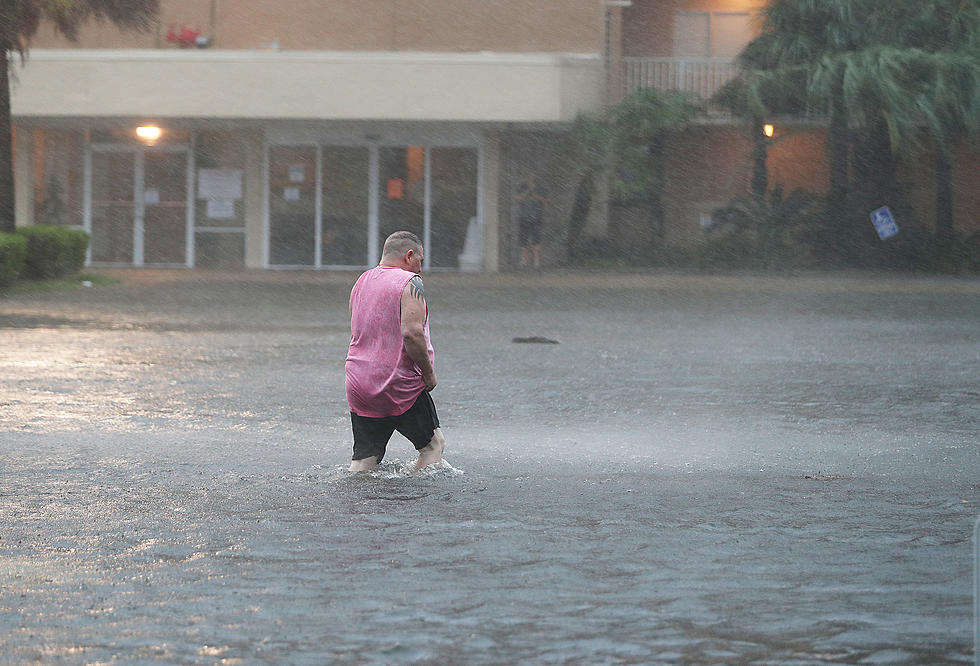
‘As Long as it Takes': FEMA, Other Agencies Respond to Ida
WASHINGTON — President Joe Biden has spoken with officials in states pounded by Hurricane Ida, detailing the federal effort to survey the damage and ensure access to electricity, water, and cell phone service.
The president said Monday that state officials should contact the White House if they need additional support — even though the effort is being led by FEMA.
“We’ll get you what you need if we can,” Biden said. “The people of Louisiana and Mississippi are resilient. But it’s in moments like these where we can certainly see the power of government to respond to the needs of the people, if government’s prepared and if they respond.”
Also, Monday, the Bureau of Safety and Environmental Enforcement said it had activated its Hurricane Response Team as Hurricane Ida made its way through the Gulf.
Based on data from offshore operator reports submitted as of late morning Monday, personnel has been evacuated from a total of 288 production platforms, 51.43 percent of the 560 manned platforms in the Gulf of Mexico.
Personnel has been evacuated from 11 rigs, equivalent to 100% of the 11 rigs of this type currently operating in the Gulf. Rigs can include several types of offshore drilling facilities.
A total of seven dynamically positioned rigs have moved off location out of the storm’s projected path, as a precaution.
The Bureau of Safety and Environmental Enforcement estimates that approximately 93.57% of the gas production in the Gulf has been shut-in.
Production information included in these reports is based on the amount of oil and gas the operator expected to produce that day. The shut-in production figures, therefore, are estimates, which the agency compares to historical production.
Nearly 300 maned oil platforms and drilling rigs were shut down and evacuated. At least nine oil refineries in the region have also been shuttered, representing 13% of the nation’s total refining capacity.
Several pipelines are also shut down as a precaution.
The service disruptions are not expected to immediately impact the availability of gasoline nationally, due to ample fuel reserves in the system, the department said.
The ports of New Orleans, Baton Rouge, Gramercy, and Morgan City in Louisiana and the Port of Pascagoula, Mississippi are all closed. The Louisiana Offshore Oil Port has also suspended operations.
Authorities were also calculating just how much wind and rain Ida unleashed. Preliminary measurements on Monday showed a high of 15.7 inches of rain from Ida dropped in Slidell, Louisiana, through 9 a.m. local time.
New Orleans got nearly 14 inches of rain. From 5 to 11 inches of rain fell in Louisiana, Mississippi, Alabama, and Florida.
A ship in the port at Port Fourchon measured 172 mph winds, while Venice, Louisiana, recorded a high of 128 mph winds.
The facilities will be inspected after the storm has passed.
With more than 1 million customers in Louisiana and Mississippi having lost power, Hurricane Ida is sure to take a toll on the energy, chemical, and shipping industries that have major hubs along the Gulf Coast.
But the impact on the overall U.S. economy will likely be modest so long as damage estimates don’t rise sharply and refinery shutdowns are not prolonged, economists say.
The hurricane is expected to inflict a less severe financial impact than Hurricane Katrina did 16 years ago, thanks to a lower storm surge and New Orleans’ improved levee system, which is better able to withstand storm surges.
U.S. health officials Monday declared public health emergencies for Louisiana and Mississippi, seeking to suspend government red tape that may get in the way of providing help to people affected by Hurricane Ida.
The emergency declaration by Health and Human Services Secretary Xavier Becerra puts a pause on certain payment rules and other requirements that could become an unwelcome distraction for hospitals and doctors trying to provide services under stressful conditions.
One example is a requirement that health care professionals be licensed in the state they provide care.
HHS has also staged an incident management team in Dallas to provide coordination of federal health and medical support after Ida passes through the region. Another team is providing support for people needing kidney dialysis.
People in emotional distress in affected areas can call 1-800-985-5990 for counseling help, or text TalkWithUs to 66746.
(Story written by By SARA BURNETT, PAUL WISEMAN, and DAVID KOENIG/AP)
LOOK: The most expensive weather and climate disasters in recent decades
More From News Talk 96.5 KPEL









